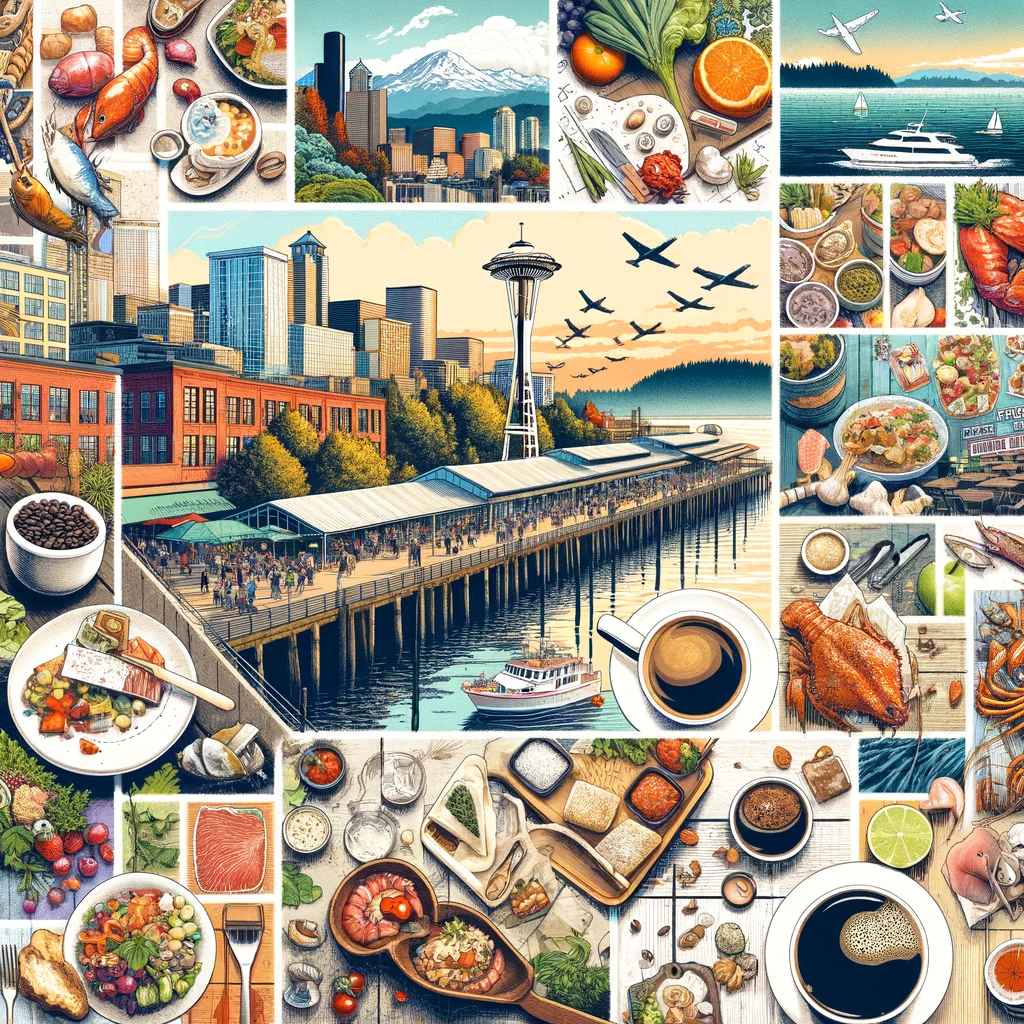Meal Planning for Beginners: Tips and Tricks to Get Started
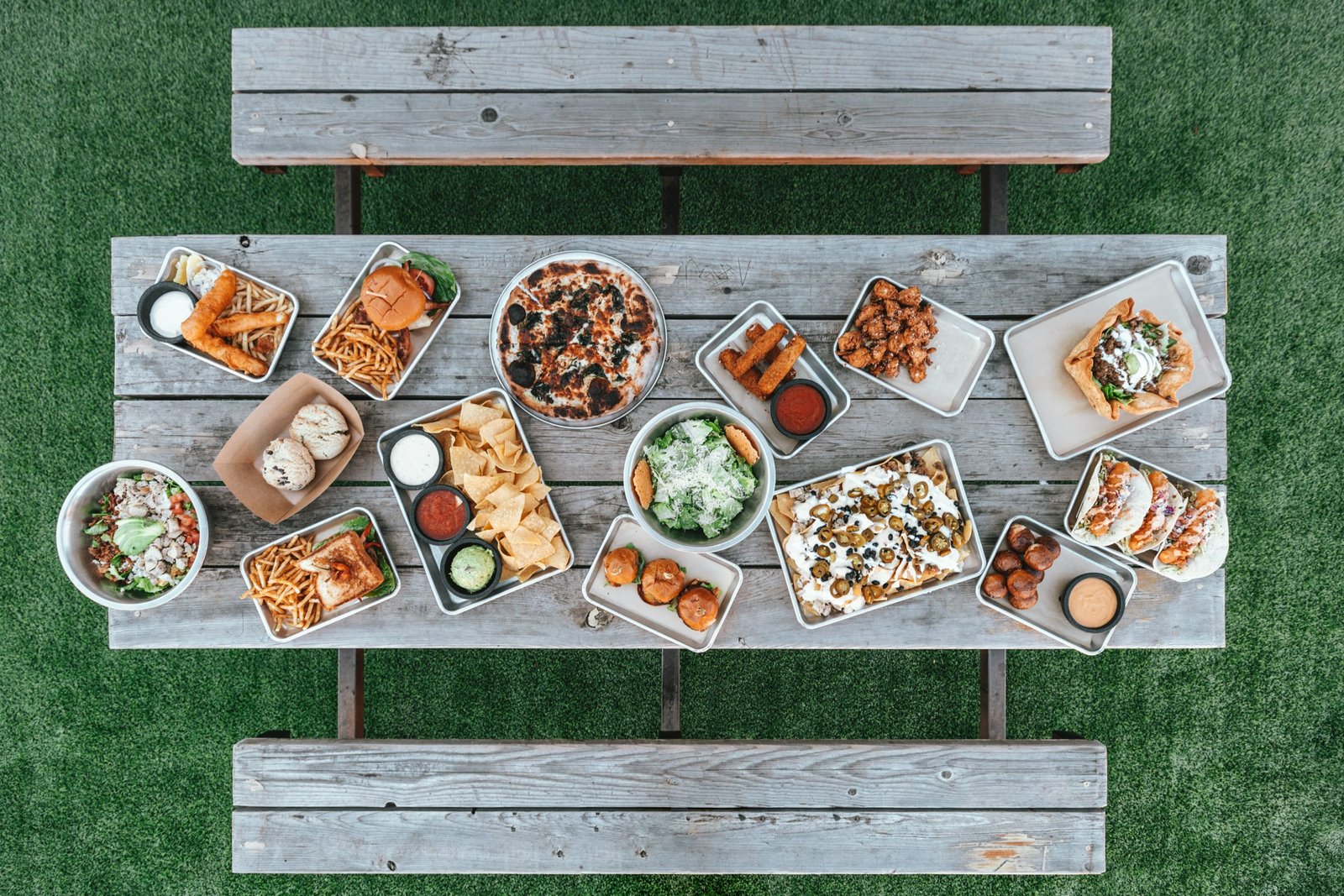

Benefits of Meal Planning
Save Time and Money
If you're a beginner at meal planning, you might be surprised to discover how much time and money it can save you in the long run. By planning your meals in advance, you can avoid last-minute trips to the grocery store and impulse purchases. With a well-planned grocery list, you'll only buy what you need, reducing the chances of wasting money on unnecessary items. Additionally, you can save time by prepping ingredients in advance, making cooking quicker and easier during busy weekdays.
Healthier Eating Habits
Meal planning allows you to take control of your nutrition and make healthier choices. By planning your meals, you can ensure a balanced diet that includes all the essential nutrients. It also gives you the opportunity to incorporate more fruits, vegetables, and whole grains into your meals. When you have a plan in place, you're less likely to resort to fast food or unhealthy options when you're hungry and pressed for time.
Reduces Food Wastage
Meal planning helps reduce food wastage by allowing you to utilize ingredients efficiently. By planning your meals around ingredients that can be used in multiple dishes, you can minimize leftovers and prevent food from going bad. You can also repurpose leftover ingredients or meals for future meals, reducing waste and saving money.
In conclusion, meal planning offers numerous benefits for beginners. It saves time and money, promotes healthier eating habits, and reduces food wastage. So, take the plunge and start meal planning today to enjoy these advantages and make your life easier in the kitchen.
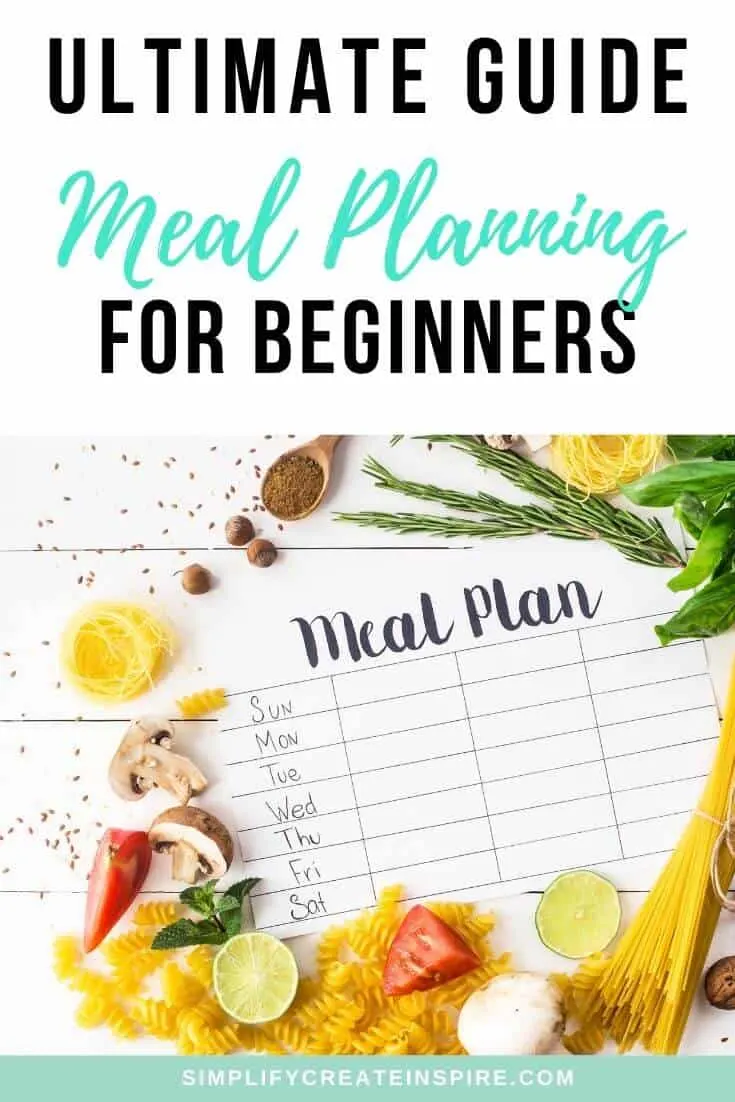
Getting Started with Meal Planning
Meal planning can be a game-changer when it comes to saving time and money while still enjoying delicious and nutritious meals. If you're new to meal planning, here are some tips to help you get started.
Set Goals and Objectives
Before you start planning your meals, it's important to define your goals and objectives. Are you trying to eat healthier, save money, or simply make your week less stressful? Determining your goals will help guide your meal planning decisions and make the process more enjoyable.
Consider Dietary Requirements and Preferences
Take into account any dietary requirements or preferences when planning your meals. Whether you follow a specific diet, have food allergies, or simply prefer certain types of cuisine, tailoring your meal plan to your specific needs ensures that you'll enjoy every bite.
Take Inventory of Your Pantry and Fridge
Before you head to the grocery store, take stock of what you already have in your pantry and fridge. This will help you avoid buying duplicate items and make use of ingredients that may be close to their expiration date. It will also give you a starting point for planning meals around the ingredients you already have on hand.
Remember, meal planning is a flexible process, and it's okay to modify your plan as you go along. Experiment with different recipes, try new ingredients, and most importantly, have fun with the process. Happy meal planning!

Tips for Effective Meal Planning
Plan Ahead for the Week
If you're a beginner in meal planning, the first step is to plan your meals ahead of time. Take a few minutes each week to decide what you'll be eating for breakfast, lunch, and dinner. Consider your schedule and any upcoming events that might affect your meal choices. Thinking ahead will help you avoid last-minute unhealthy food decisions.
Create a Weekly Meal Schedule
Another tip for effective meal planning is to create a weekly meal schedule. This doesn't mean you have to eat the same thing every day. Instead, aim to have a variety of different meals throughout the week. Assign specific recipes or types of meals to each day, and be sure to include a balance of protein, vegetables, and whole grains. This will help you stay on track and avoid getting bored with your meals.
Include a Variety of Nutritious Foods
When planning your meals, it's important to include a variety of nutritious foods. This means incorporating a wide range of fruits, vegetables, lean proteins, whole grains, and healthy fats. Aim to include different colors and textures in your meals to ensure you're getting a good mix of nutrients. Don't forget to consider any dietary restrictions or preferences when choosing your ingredients.
Prep Ingredients in Advance
To make meal preparation easier and more efficient, consider prepping some ingredients in advance. This can include washing and chopping fruits and vegetables, cooking and portioning proteins, and preparing grains or pasta. By doing some of the prep work ahead of time, you'll save yourself valuable time during the week and make it easier to stick to your meal plan.
Remember, meal planning is a process that might require some trial and error. Don't be afraid to experiment with different recipes and adjust your meal plan as needed. With practice, you'll become more efficient and find a routine that works for you.
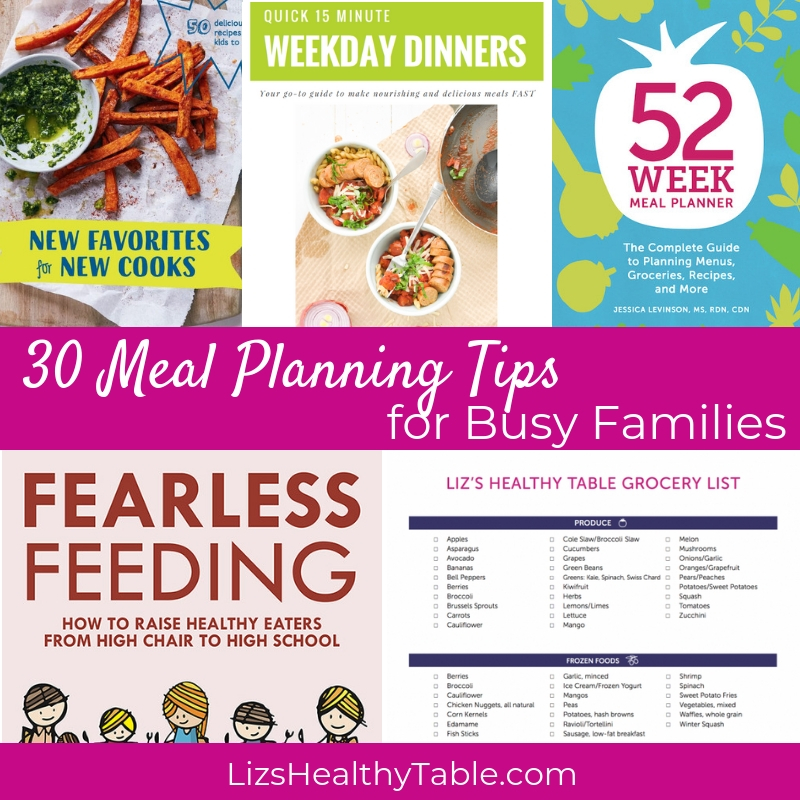
Healthy Meal Ideas and Recipes
Breakfast Options
So you've decided to start meal planning and you're looking for some healthy and delicious breakfast ideas to kick-start your day. Here are a few options to get you started:
-
Overnight oats: Mix rolled oats with your choice of milk, yogurt, and sweetener. Leave them in the fridge overnight, and in the morning, you'll have a delicious and nutritious breakfast ready to go. Add fruits, nuts, or seeds for extra flavor and texture.
-
Avocado toast: Toast a slice of whole-grain bread and top it with sliced avocado, a sprinkle of salt and pepper, and a squeeze of lemon or lime. You can also add a poached or fried egg for an extra protein boost.
Lunch and Dinner Ideas
When it comes to planning your lunches and dinners, it's all about balance and variety. Here are some healthy and satisfying meal ideas:
-
Grilled chicken with roasted vegetables: Marinate chicken breast in olive oil, lemon juice, garlic, and herbs. Grill it to perfection and serve it with a side of roasted vegetables like carrots, broccoli, and bell peppers.
-
Quinoa salad with mixed greens: Cook quinoa according to package instructions and let it cool. Mix it with a variety of colorful vegetables, like cherry tomatoes, cucumbers, and bell peppers. Toss everything together with a light dressing, and you have a refreshing salad that's packed with nutrients.
Snacks and Desserts
Don't forget to plan for healthy snacks and treats to satisfy your cravings. Here are a couple of ideas:
-
Greek yogurt with berries: Top a bowl of Greek yogurt with a handful of your favorite berries, such as strawberries, blueberries, or raspberries. It's a simple and nutritious snack that's high in protein.
-
Dark chocolate and almond butter energy balls: Mix together dates, almond butter, cocoa powder, and a sprinkle of sea salt. Roll the mixture into bite-sized balls and refrigerate. These energy balls are a delicious and guilt-free treat.
Remember, meal planning is all about finding what works best for you and your lifestyle. Experiment with different recipes and ingredients to keep things interesting and enjoyable. Happy meal planning!

Grocery Shopping Tips
Make a Shopping List
When it comes to meal planning for beginners, one of the most important tips is to make a shopping list. This simple practice can make a world of difference in your grocery shopping experience. Take some time before heading to the store to plan out your meals for the week and make a detailed list of the ingredients you'll need. This will help you stay focused, avoid impulse purchases, and ensure that you have everything you need to prepare your meals.
Stick to the Perimeter of the Store
When you're new to meal planning, it can be overwhelming to navigate through the aisles of a grocery store. One helpful tip is to stick to the perimeter of the store. This is where you'll usually find fresh produce, meat, dairy, and other essential ingredients. By focusing on the perimeter, you'll be less likely to get distracted by processed and unhealthy foods in the middle aisles.
Look for Sales and Discounts
Another tip for beginners is to keep an eye out for sales and discounts. Many grocery stores offer weekly specials and promotions on different items. By taking advantage of these deals, you can save money and still enjoy a variety of nutritious meals. Before heading to the store, check the weekly flyers or browse the store's website to see what's on sale.
Buy in Bulk (When Applicable)
If there are certain ingredients that you know you'll use frequently in your meal planning, consider buying them in bulk. This can be a cost-effective way to stock up on staples like rice, pasta, canned goods, and frozen items. Just make sure to check the expiration dates and storage recommendations to ensure that the items will last until you need them.
By following these grocery shopping tips, meal planning for beginners can become a much more enjoyable and efficient process. With a little preparation and smart shopping, you'll be well on your way to creating delicious and nutritious meals throughout the week.
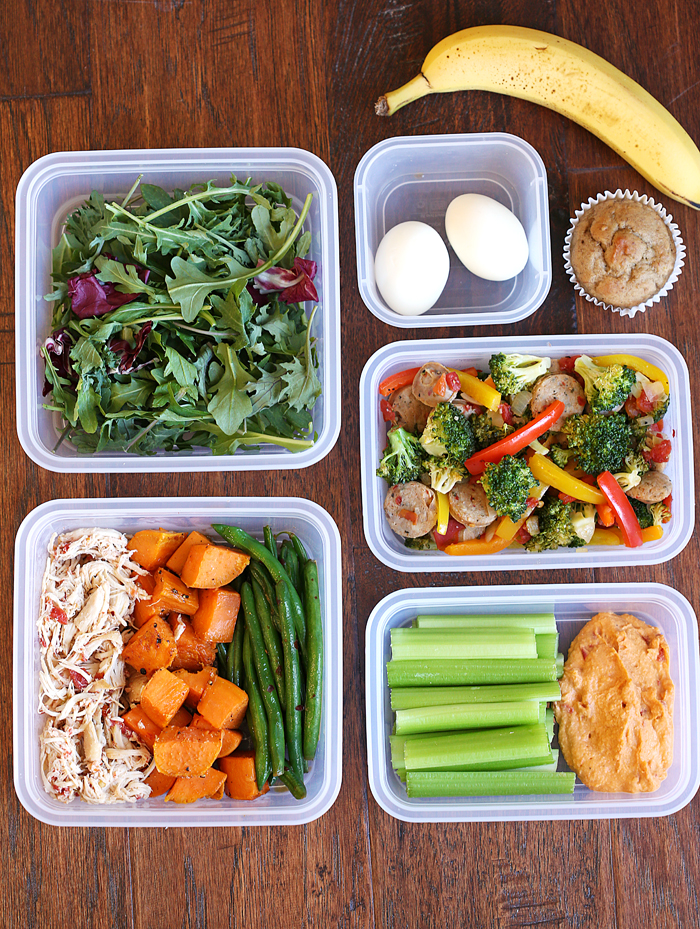
Meal Prepping and Batch Cooking
If you're a beginner in the world of meal planning, you might be overwhelmed with the idea of preparing meals in advance. But fear not! Meal prepping and batch cooking can actually make your life easier and more efficient in the long run.
Benefits of Meal Prepping
-
Saves Time: One of the biggest advantages of meal prepping is that it saves you time throughout the week. By preparing multiple meals at once, you can minimize the time spent in the kitchen on a daily basis. No more scrambling to figure out what to cook each day, as your meals are already prepped and ready to go.
-
Healthier Choices: Meal prepping allows you to control the ingredients you use and portion sizes, making it easier to choose healthier options. It helps you avoid impulsive, unhealthy food choices when you're short on time or feeling hungry.
-
Saves Money: When you plan your meals in advance, you can make a shopping list based on what you need. This prevents unnecessary purchases and impulsive buying, saving you money in the long run.
-
Reduced Stress: Meal prepping eliminates the daily stress of deciding what to eat. With meals ready in advance, you can simply grab and go. It also gives you peace of mind knowing that you have healthy options available whenever hunger strikes.
-
Portion Control: With meal prepping, you can portion out your meals according to your dietary needs or goals. This helps you maintain portion control and prevents overeating.
By implementing meal prepping and batch cooking into your routine, you can save time, eat healthier, and reduce stress. It may seem daunting at first, but once you get the hang of it, you'll wonder how you ever lived without it. So go ahead, give it a try and simplify your meal planning process.

Conclusion
Meal planning for beginners can seem overwhelming at first, but with a little bit of practice and organization, it can become a valuable habit that saves you time, money, and stress in the long run. By following these tips, you can set yourself up for success and enjoy the benefits of planning and preparing delicious and healthy meals.
FAQs About Meal Planning for Beginners
-
How far in advance should I plan meals? It's recommended to plan your meals for the upcoming week. Take some time each week to sit down and create a menu for the days ahead. This will help you create a shopping list and ensure you have all the ingredients you need.
-
Can I still be flexible with my meal plan? Absolutely! Meal planning doesn't mean you have to stick to a strict schedule. It simply provides you with a framework for your meals and helps you stay organized. Feel free to switch things around or try new recipes if you feel like it.
-
Do I have to cook every meal from scratch? Not at all! Meal planning can still be convenient even if you don't have time to cook every meal from scratch. You can plan for leftovers, incorporate pre-made options, or prepare freezer meals ahead of time.
-
What if I have dietary restrictions or preferences? Meal planning can easily accommodate dietary restrictions or preferences. Simply choose recipes that align with your needs and make substitutions or modifications as necessary.
-
How can I make meal planning fun? Get creative! Explore new recipes, involve your family or friends, or set a themed night where you try different cuisines. Making meal planning enjoyable will increase your excitement and motivation to stick with it.
Remember, meal planning is a tool to make your life easier and healthier. Don't be discouraged if it takes some time to find a system that works for you. Keep experimenting and soon you'll be reaping the rewards of a well-planned and delicious menu. Happy meal planning!



